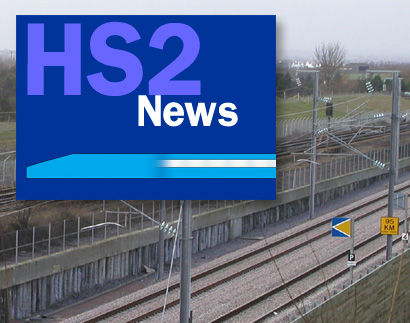THE Government is stepping up its campaign to promote High Speed 2, after several weeks in which various opponents have been mustering their arguments against the scheme.
Although the official budget for both phases is capped at around £50 billion, including £7.5 billion for trains as well as a contingency budget of more than £14 billion, there have been claims from critics that the real cost could be as much as £80 billion.
This is firmly denied by the Department for Transport, which says the aim is to work within the budget and not to use any of the contingency margin if that proves possible.
The DfT has also confirmed that the present official figure takes into account the additional tunnels which have been agreed on environmental grounds in north west London and the Chilterns.
The Paving Bill, which will authorise expenditure on the project for the near future, has now passed the Committee Stage and is set to receive its Third Reading when Parliament returns.
But in the meantime the Government has been taking the case in favour of HS2 to the West Midlands, with a major event staged in Birmingham today (Friday).
Members of the HS2 Growth Taskforce have been meeting key figures from the region, in the first of a series of roadshows.
One major benefit is said to be the creation of tens of thousands of jobs, including as many as 50,000 in construction alone when the project reaches its peak.
Taskforce member Sir Albert Bore, who is also leader of Birmingham City Council, said: "I am pleased that the HS2 Growth Taskforce is in Birmingham to see all that the city has to offer and to consider how it could benefit from HS2.
"New research by KPMG for the regional transport authority Centro, published today, reveals that HS2 will deliver 50,000 jobs and £4 billion of economic growth each year for the West Midlands. The figures show the benefits of connecting Birmingham and London are more than doubled when the region is also linked with Manchester and Leeds."
He was accompanied by commercial Treasury secretary Lord Deighton, who also chairs the HS2 Taskforce. He said: "With Birmingham firmly at the heart of the new HS2 network it is a great place to start our roadshows and consider the transformational effect HS2 could have on the city and West Midlands. Redevelopment at Curzon Street as a result of the new station would see the area become a vibrant hub with the potential for retail, leisure and other industries to maximise this opportunity.
“HS2 is not just a project for London or the station cities and the Growth Taskforce is determined to see the benefits stretch far and wide across the country. That is why getting out and meeting with our city and business leaders is so vital and will go a long way to informing our final report to the Government.”
Deputy Prime Minister Nick Clegg has also joined the debate by speaking in favour of a High Speed line. In a speech to the annual dinner of the CBI, he said: "Completing HS2 will help us to tackle the North-South divide that's scarred our country for too long. Giving eight of our biggest cities, across the North and Midlands, the modern rail links they deserve, as well as generating over £60bn of benefits for the UK."
He also went to reject claims that the £50 billion budget should be spent on improving existing lines instead, saying: "The alternatives, such as upgrading existing lines, aren't viable answers."
Even so, the promotion of HS2 is set to be countered by more arguments from those who maintain that the scheme is not value for money. Another report on HS2 is due shortly from the House of Commons Public Accounts Committee, which has been critical of the alleged benefits in recent times.
Campaigners have also been claiming that the so-called Gagging Bill, which is intended to put a brake on communications during the year before an election, could also prevent the voicing of legitimate opposition to HS2, although it has been suggested today that Ministers are set to stage a partial u-turn about some of the proposed restrictions next week.


